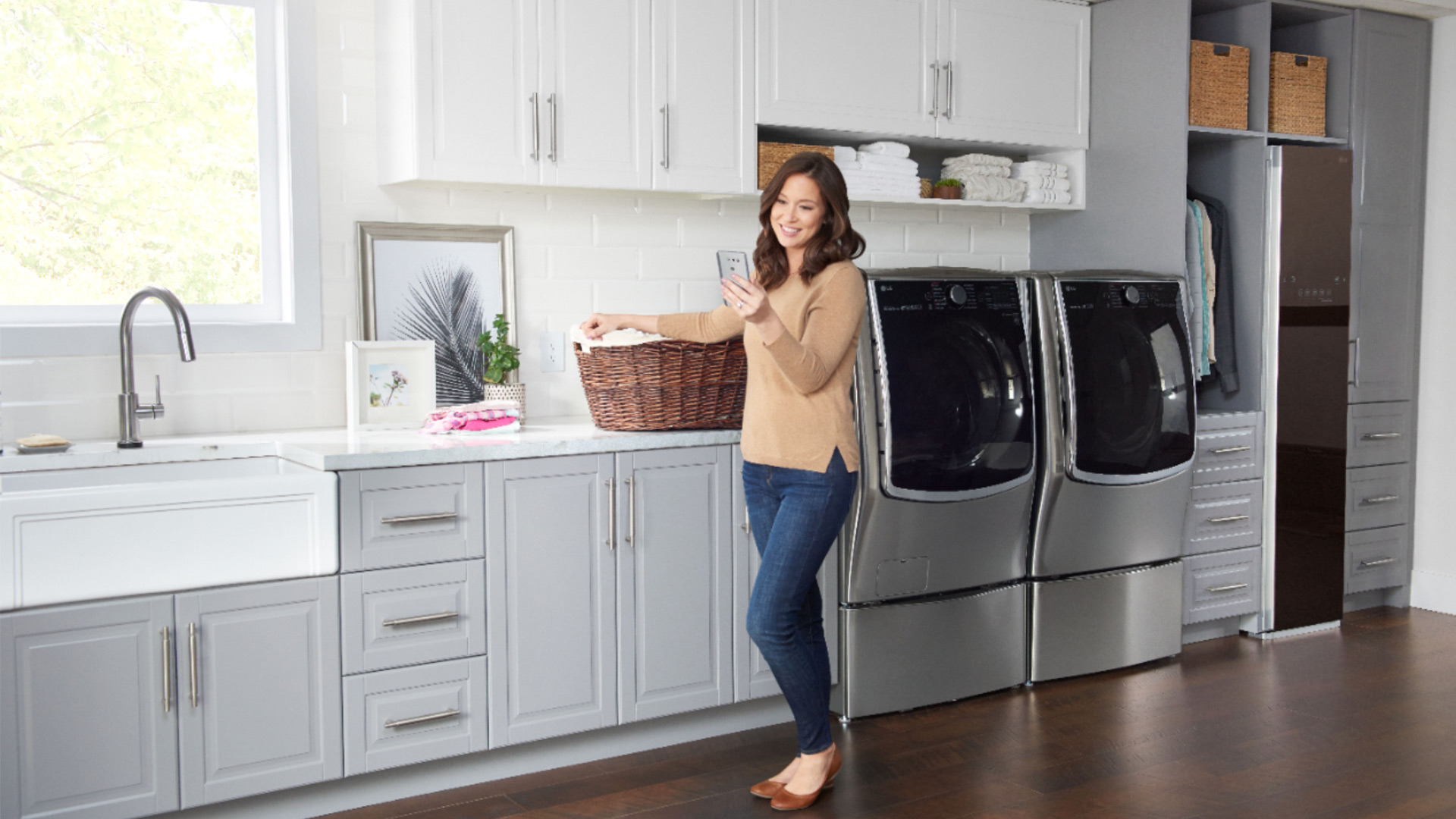How to make your home more energy efficient
Here’s how to make your home more energy efficient and save on your utility bills

When you think about ways to make your home more efficient, you’ll need to think about the house itself as well as the appliances inside that use energy. Furthermore, it’s important to assess your own behaviors that might be contributing to wasting energy. Are you guilty of sitting in one room but leaving lights on all over the house, do you constantly run one of the best dishwashers, or are you that person who turns up the thermostat instead of grabbing a sweater?
Making a home more efficient requires a 360º approach and even small changes can add up. We’ve looked at some of the ways you can make your home more efficient so you can stop wasting money on unnecessarily high utility bills and the planet will thank you too.
Ways to make your home more efficient
1. Buy more efficient appliances
We’re not suggesting you throw out your perfectly good appliances and replace them all - that would be wasteful and costly, but when it’s time to upgrade or replace them, look for ENERGY STAR certified appliances. Energy Star is a government backed symbol and all Energy Star certified appliances have been independently tested to meet strict standards for energy efficiency set by the Environmental Protection Agency (EPA). This means that when you buy an appliance with Energy Star certification, you have assurances that it’s energy efficient, meaning it uses less energy to do the same job as other appliances, in the long term this will save you money on your utility bills.
2. Switch to LED lightbulbs
This is a really simple change that can save you a significant amount of electricity and money. According to research by Direct Energy, switching from incandescent light bulbs to LEDs could save the average home around $75 per year and that’s because they use about 80% less energy. They also last for a long time so you won’t need to replace them very frequently, based on having them switched on for eight hours a day you can expect your LED light bulbs to last as long as 17 years!
3. Reduce the temperature of your washer
Sign up to receive the latest news, reviews, buying guides and deals direct to your inbox
The best front load washers are much more energy efficient than older models, but if you’ve got a slightly older model that you’re not looking to replace just yet, you can still use it in a more efficient way. The American Cleaning Institute (ACI) says that about 90% of the energy used by your washing machine is just to heat the water. So, by opting for lower temperature washes or even cold washes, you’ll reduce the amount of energy used by your washer, plus they say that washing in cooler temperatures can prolong the lifespan of your clothes so it’s a win-win.

4. Go easy on the heating and AC
The US Energy Information Administration (EIA) says that more than half of the energy used in homes is for heating and air conditioning. With that in mind, it’s also where you can make the biggest savings if you use it in a more efficient way. Obviously, it’s not practical for everyone to upgrade to the latest energy efficient HVAC system, although if you do need to upgrade or you’re remodeling – look for an Energy Star certified unit. But for the rest of us, the best and easiest way of being more efficient is by better controlling temperatures and making sure you’re not heating or cooling the house when you don’t need to.
Investing in a smart thermostat is a good way to have more control over the temperature in your home. A smart thermostat can learn your routine and habits and make adjustments to save energy. You’ll also be able to control the temperature from your phone, perfect for those days when you forget to adjust the thermostat before you leave the house. Alternatively, why not take a look at the best tower fans or the best ceiling fans rather than relying on AC.
5. Seal air leaks and add insulation
Heating or cooling air to the perfect temperature and then having it leak right out of your home is like throwing your hard-earned dollars into the trash. Check for gaps around your windows and doors, it’s an easy fix to caulk gaps or add weatherstripping to make sure they’re properly sealed. Do this around the access door to your attic too, or better yet, improve the insulation in your attic to keep the heat in. According to Energy Star sealing air leaks and adding insulation to your home can save you up to 10% on your yearly energy bill.
6. Upgrade your water heater
If your water heater is old, it probably uses more energy than it should, so it’s definitely time to think about an upgrade by investing in one of the best water heaters. Look for an Energy Star certified model with a tank capacity that’s correct for your home and water usage – there’s no point wasting money heating a huge tank of water if you have a small household.
7. Replace your windows
Old single pane windows offer little insulation from the outside temperature. Good double pane energy efficient windows can minimize heat loss as well as keeping your home cooler in the summer. But, this is an expensive upgrade and if changing out all the windows in your house isn’t an option right now, there are other things you can do. Thick, lined, or thermal curtains and drapes can help insulate a room, in winter they can reduce the amount of heat lost through windows and in summer they will keep rooms cooler by blocking the sun. The US Department of Energy estimates that when drawn, even conventional draperies can reduce heat loss through windows by up to 10% - making good curtains a worthwhile investment.
Discover more guides for the home…
Best front load washers
Best top load washers
Best dryers
Best ovens
Best french door refrigerators

Helen, with a degree in Home Economics and a background in the food industry, transitioned to a career at the Good Housekeeping Institute in 2007. She specializes in testing and reviewing household appliances and offering advice in various publications. She enjoys gardening, working out, and DIY projects in her free time.
